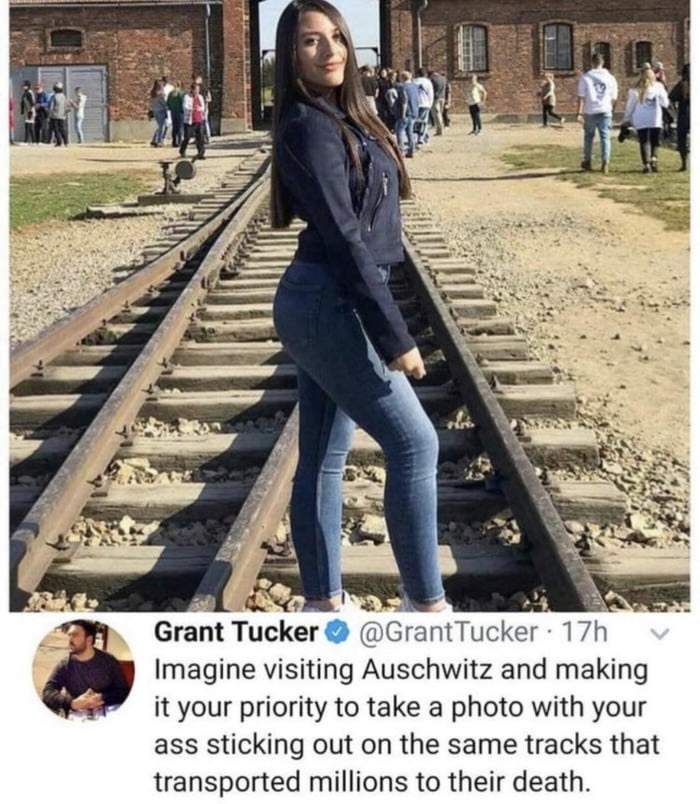this post was submitted on 05 Aug 2024
410 points (95.2% liked)
Facepalm
186 readers
1 users here now
Anything that makes you apply your hand to your face.
founded 4 months ago
MODERATORS
you are viewing a single comment's thread
view the rest of the comments
view the rest of the comments

How many other places in the world could she have taken this photo? All of them.
As a start, 6 million Jews were exterminated in camps like this, as well as many, many others, including some of my relatives.
I have my views, and they aren't shared by everyone. I am obligated at times to go to a church, and as an atheist, I keep my mouth shut and let people observe their sacred places.
This location is sacred, to many people for many reasons. Nothing about it suggests "Look at me aren't I cute?".
The events that happened there represent some of the worst that man can do to thier fellow man. The defeat of that ideology and liberation of these camps represent the best that man has to offer.
Men women and children died there on mass because of who they were. Men died on mass to free, protect, and avenge those people.
When you are walking on someone's grave, please show respect. When you are walking on a peoples grave, yes, take a photo, commemorate your experience, and have the humility and humanity to do it in a way that honors those who died.
The irony here is palpable: the author demands respect for the victims of historical atrocities while using language that inadvertently excludes and marginalises. Phrases like "the worst that man can do to their fellow man" and "the best that man has to offer" are not only outdated but also insensitive, as they ignore the gender inclusivity that should be a part of any respectful discourse. Furthermore, referring to the dead collectively as "men" fails to recognise the countless women and children who also suffered and perished. This linguistic insensitivity, while perhaps unintentional, detracts from the powerful message of the rant and reveals a blind spot in the call for inclusive and universal empathy.
The phrase men used to primarily mean all humans in English. This is just nitpicking and using a historical phrase in this way doesn't exclude anybody or detract from anything, unless you intentionally ignore contemporary use of language.
The terms "man" and "mankind" have historically been used to refer to humanity as a whole, but their continued use is a subtle reinforcement of a male-centric view of the world. To suggest that "mankind" encapsulates all human beings is not just an oversight; it perpetuates a narrative where men are the default and women are an afterthought. This linguistic practice not only erases the presence of women but also reinforces patriarchal structures that have long excluded them from full participation and recognition.
Language shapes our reality. When we default to male-oriented terms to describe humanity, we implicitly suggest that men are the standard against which all others are measured. This isn't merely about semantics; it's about recognising the inherent dignity and equality of all people. Using "humankind" or "humanity" acknowledges the full spectrum of our species, respecting the contributions and existence of everyone, not just half of the population.
The argument that such terms are convenient or traditional falls apart when we consider the power of language to shape thought. Just as we have evolved from archaic practices and beliefs, our language must evolve to reflect a more inclusive and respectful understanding of our shared human experience. In summary, clinging to "mankind" is not a mere linguistic preference; it's a refusal to fully acknowledge and respect the equal humanity of women.
Sure, but this kind of advocacy doesn't belong in conversations about respect for the dead.
Go after corporate and government uses of words used that way.